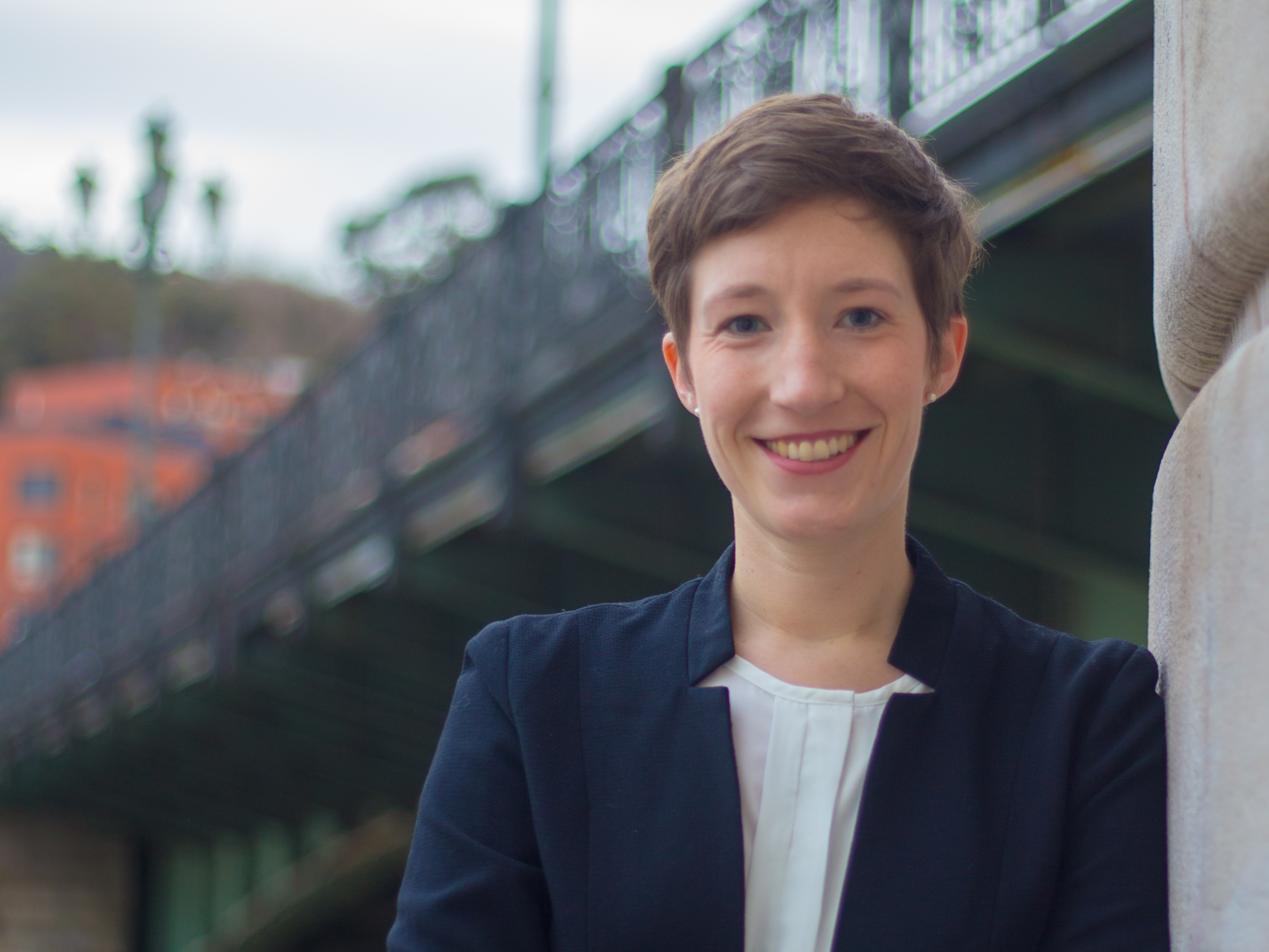Born in Münster, Germany • Birth year 1988 • Studied Mathematics in Münster, Germany • Highest degree PhD in Mathematics and Statistics from the University of the Basque Country in Bilbao, Spain • Lives in Cologne, Germany • Current Occupation: Applied Mathematician at Bayer
It started all in 4th grade. After being really bad at mental arithmetic, I started to enjoy mathematics for the very first time when concepts became a bit more complex. When I was 9 years old I decided not only to study but also do a PhD in mathematics. So after finishing the A-level, this was exactly what I did. Of course it was hard and different from the maths they teach in high school but I got to appreciate the pure and perfect way of mathematical proofs. However, it was not before the end of my Bachelor that I learned about the diverse applications of mathematics in Biology and Medicine. I never grew very fond of the theoretical part but just saw it as a tool you need to understand and master in order to apply the theory to real world problems. Even though I always had the dream of doing a PhD in mathematics, doubting my skills and abilities made me question this dream. What finally convinced me to continue research and start a PhD in maths was a very honest talk by a female professor at a meeting of women in maths. By coincidence I found the PhD position in Bilbao (Spain) in computational neuroscience and directly knew that this was my topic.
The most exciting part of research for me was and is solving a problem. It is like a scavenger hunt: you follow traces, read instructions and do trials, which surprisingly involves a lot of creativity.
With the focus on personalised models for a phenomenon related to migraine, I got the opportunity to learn a lot of different strategies from numerical methods to solve differential equations, to curvature approximations and data processing. I worked with neurologists, physicians and medical doctors and learned a lot about interdisciplinary communication. The most exciting part of research for me was and is solving a problem. It is like a scavenger hunt: you follow traces, read instructions and do trials, which surprisingly involves a lot of creativity. Of course it is not all fun, running the simulation for the umpteenth time and writing papers is never going to be my favourite part.
Right when I started to write my PhD thesis, I fell sick and was all of a sudden experiencing personalised medicine from the patient’s point of view. It totally swept me off my feet because I had to pause my PhD for a while and could not stick to the schedule that I had planned. During this time I got a lot of insights in the diversity of medical treatments and was surprised by the differentiated treatment strategies. However, I also saw the potential for data-based fine tuning in the treatment strategies. After this forced break I focused even more than ever on the things that I really wanted: finish the PhD, see the world and find a job in mathematics with an impact.
The first of these points I tackled as quickly as possible. Even though I enjoyed research I could feel a weight lifting from my shoulders when I finally defended my thesis. The second point, traveling for a year after the PhD had always been a fixed idea in my head but talking to friends and family brought up a lot of doubts: would this look bad in my CV? Would this have a negative impact on my career? Would traveling alone be dangerous? However, after very encouraging conversations with professors and friends who had already travelled alone for a longer time, I just took the leap. I bought the plane tickets and went backpacking from Peru to Patagonia in the very south of Chile and through New Zealand by myself. In the beginning before leaving it was scary but in the end it was one of the best decisions in my life, and I learned so much about different cultures, traditions, people and communication that no book or course could have ever taught me.
After hiking the Patagonian highlands, starting as an applied mathematician in a pharmaceutical company is now my next big adventure.
The question if I want to continue research after obtaining my PhD already haunted me during my PhD studies, but when I got back from my big trip I finally knew the answer. I wanted to use my maths skills to help people in the medical sector. Consequently, I solely searched for maths jobs in pharmaceutics where I have just started as an applied mathematician. Changing from the university to a company opens up a totally new universe which I am still exploring but I am very curious and excited to better understand. So after hiking the Patagonian highlands this is now my next big adventure.
During my studies and my big trip I was very lucky to meet encouraging role models, supportive fellow students and inspiring like-minded people that helped me find my way – thank you all.

